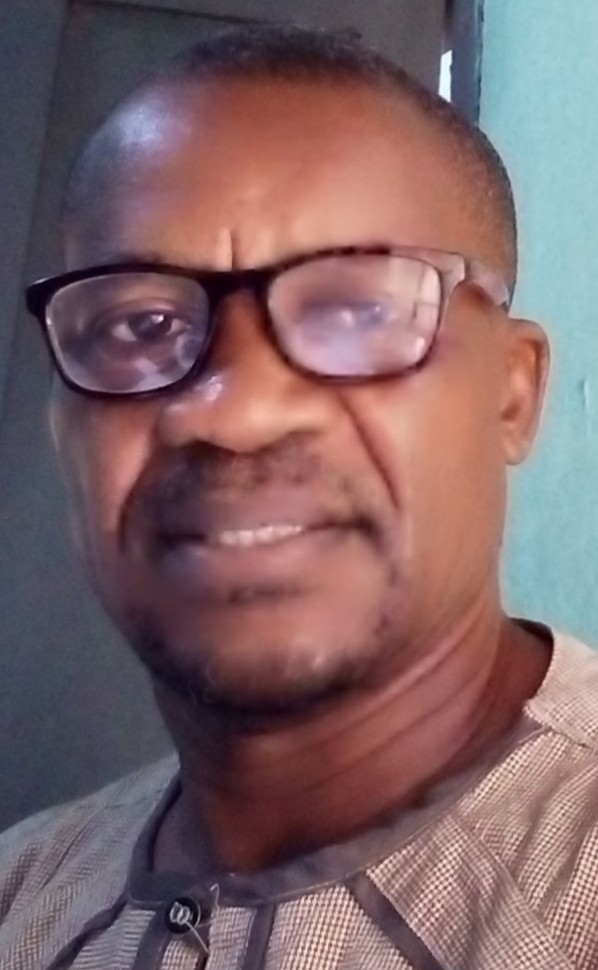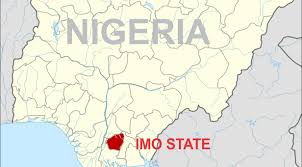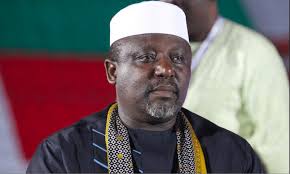By Richard Dirim Odu
Apostle Johnson Suleman of the Omega Fire Ministries joined the train of those with the Igbo-must-not-be-president frame of mind, recently. In his journey along the path of Igbo bashing, which has become the cherished hobby of his likes since it became so obvious that the Igbo should produce the next president of the nation, the apostle was quoted as saying that Nigerians do not trust Igbos to be president because they don’t support themselves.
The apostle went down memory lane to remind the nation of “how Igbos have fought against each other, that an Igbo Senate President, Evan Enwerem was removed by another Igbo man, Chuba Okadigbo, who was subsequently replaced by Anyim Pius Anyim, another Igbo.”
To begin with, the Apostle showed in this puerile analysis of national events that he had dabbled into a field he knew nothing about. How could a single person, in a supposedly democratic setting, remove another as Senate President without the collaboration of other Senators? We are aware that at that time, when some residue of honour was still left in politics, the position of the Senate President was the exclusive preserve of the South easterners. In which case, whoever occupied the position, as long as he was Igbo, was okay during that period. Igbo people do not seem to be given to stifling personal ambitions of people so long as the ambition conformed to rules. Fair play is usually important to them, more important than obsequiousness.
READ ALSO:
What people see as betrayal among the Igbo is simply an underlining of the republican spirit of the Igbo person. If Okadigbo felt he could handle the Senate better and was able to convince the rest of the senators to remove Enwerem and install him as Senate President, what’s wrong with that? And if Anyim, at a time, won the admiration of the Senate over Okadigbo, why couldn’t he be the Senate President? Was the apostle implying that if an Igbo becomes president, another Igbo would remove him in like manner to occupy the seat? Had he sighted cases of trust issues between the Igbo and other tribes making up Nigeria, one would begin to feel the need to listen to the apostle.
Suleman is a post-war kid and is, therefore, to be pitied for his poor sense of history which has been the problem of his age. Had he been well grounded in the history of the nation, the apostle would have tamed his utterances instead of merely echoing comments about Ndigbo which some of his fathers and grandfathers had passed down, from generation to generation, with the demonic purpose of disparaging a people and weakening the worth of their personality. Before casting aspersions on the Igbo, Suleman should have investigated the relationship between the former Premier of Western Region, the late Samuel Ladoke Akintola and the Yoruba sage, Jeremiah Obafemi Awolowo, which led to the disturbances tagged operation wetie in the 1960s.
Indeed, it was one of the remote causes of the civil war that claimed millions of lives. It was gathered from history that differing interests for strategic alliances in the defunct Action Group (AG) party led to a political crisis between Akintola and his friend, Chief Awolowo, AG’s leader. The battle for supremacy in the party led to disagreement between them. Akintola, specifically, disagreed with Awolowo’s decision not to join the coalition government, feeling that the Yoruba people of the West were losing their pre-eminent position in business, university and administration in Nigeria to the Igbo people of the East simply because the Igbo-controlled National Congress of Nigerian Citizens (NCNC) had joined the government formed by Abubakar Tafsea Balewa, and the AG had not. He also opposed the party’s decision to adopt democratic socialism as its ideology, preferring a more conservative stance. It was all a difference in viewpoint and had nothing to do with betrayal of trust.
The story of Joseph Tarka and Godwin Daboh who were sworn political rivals in Benue State is still fresh in history. The late Chief Godwin Daboh Adzuana’s kinsman, the legendary Joseph Tarka, who was Minister of Transport and then Communications, had called on Nigerians to report corrupt government officials as a way to stem the pervading corruption in the system during the Gen. Yakubu Gowon regime. Encouraged by the call, Daboh, who appeared to have waited for an opportunity to torpedo the rising profile of his political adversary, provided damning evidence against the Minister. Confronted by the weight of what Daboh brought, Tarka was forced to resign. In turn, Tarka fought back against Daboh. The phrase “If you Tarka me, I go Daboh you” was later coined from the drama by a newspaper columnist. Tarka and Daboh were not Igbo. Were these instances of war in the brotherhood? If so, the phenomenon cannot be made exclusive to Igbo. Besides, it’s only a crooked mind that would expect Daboh to cover the dirty tracks of Tarka because he was his kinsman. Those using it as an object of stigmatization should consider themselves myopic.
READ ALSO
In the 1999 election that ushered in the present democratic dispensation in 1999, the battle was between two Yoruba stalwarts, Olu Falae and Olusegun Obasanjo. Did it mean that they were at war? Yemi Osinbajo and Bola Tinubu are the latest of the same scenario. Suleman, in his outburst which could not be traced to any tangible provocation, strayed into the Biafra subject, thundering, “You betray your people. Look at this agitation for Biafra. Who are the people attacking Biafra most, Igbos. Shameless Igbos.”Was he endorsing Biafra?
Again, he realized he had goofed and added, “Am I in support of Nigeria dividing, No! Am I in support of Nigeria separating, No. Do I believe we should be together? Yes. But even if you don’t agree with the man who is your brother, should you say it publicly if you are not a fool?” There lies the problem of Nigeria. It is now a foolish thing to expose the wrongs of your kinsman! He forgot that in democratic politics divided opinions are inevitable and are not supposed to be muffled.
Discerning citizens understand that the Nigerian question transcends the subject of trust as not one human being, no matter the land or clime, is trustworthy not even the self acclaimed apostle Suleman. A living proof is the present dispensation which came into power carrying a shipload of trust, only to disappoint the people in every ramifications of governance, be they economy, health, education or security in nearly eight years of rule. What is quickly needed in a Nigeria inundated with diverse interests and views is the enthronement of a system based on the rule of law, laws that are fashioned without bias to any group, not the likes of the controversial Water Resources Bill that seeks to dominate, not the one that surreptitiously gives room for a section of the country to cease other people’s ancestral lands in the name of RUGA settlements. If Igbo can be outspoken against another straying Igbo, it becomes rather a glittering qualification for the Igbo to be president since they are likely incapable of ganging up against other tribes or federating units in the country.
For crying out loud, this Igbo bashing which gained momentum 50 years ago after the war ought to have reached its expiring date at this time. The nation must get down to business and refurbish itself, knowing that the countries that were on the marks with it when the race began years back are well ahead of it today. Singapore, Malaysia, Brazil, as well as a good number of nations that rubbed shoulders with Nigeria as third world countries are on the threshold of being global superpowers, having attained relative political harmony, as well as economic and technological development. Nigeria is yet grappling with primordial and sectional sentiments. If an Igbo who parades splendid records in governance or public administration throws up his hands for the presidency, it is worth trying him on the job. We must desist from struggling to put a label on him to stop him. Our right attitude should be to test him and see, as other tribes had been tested on that seat.
READ ALSO
Suleman’s outburst reflects his level of education because education, as a matter of fact, broadens the mind and allows the individual to shed some of the hackneyed stereotypes that clog his cranium. Really, should we not recommend that the apostle moves further up in the rungs of learning for him not to entangle himself with verbiage on occasions like this? He is still young enough to go to school.
Dr. Odu, a journalist and academic, can be reached through dirimrich2018@gmail.com.
READ ALSO









